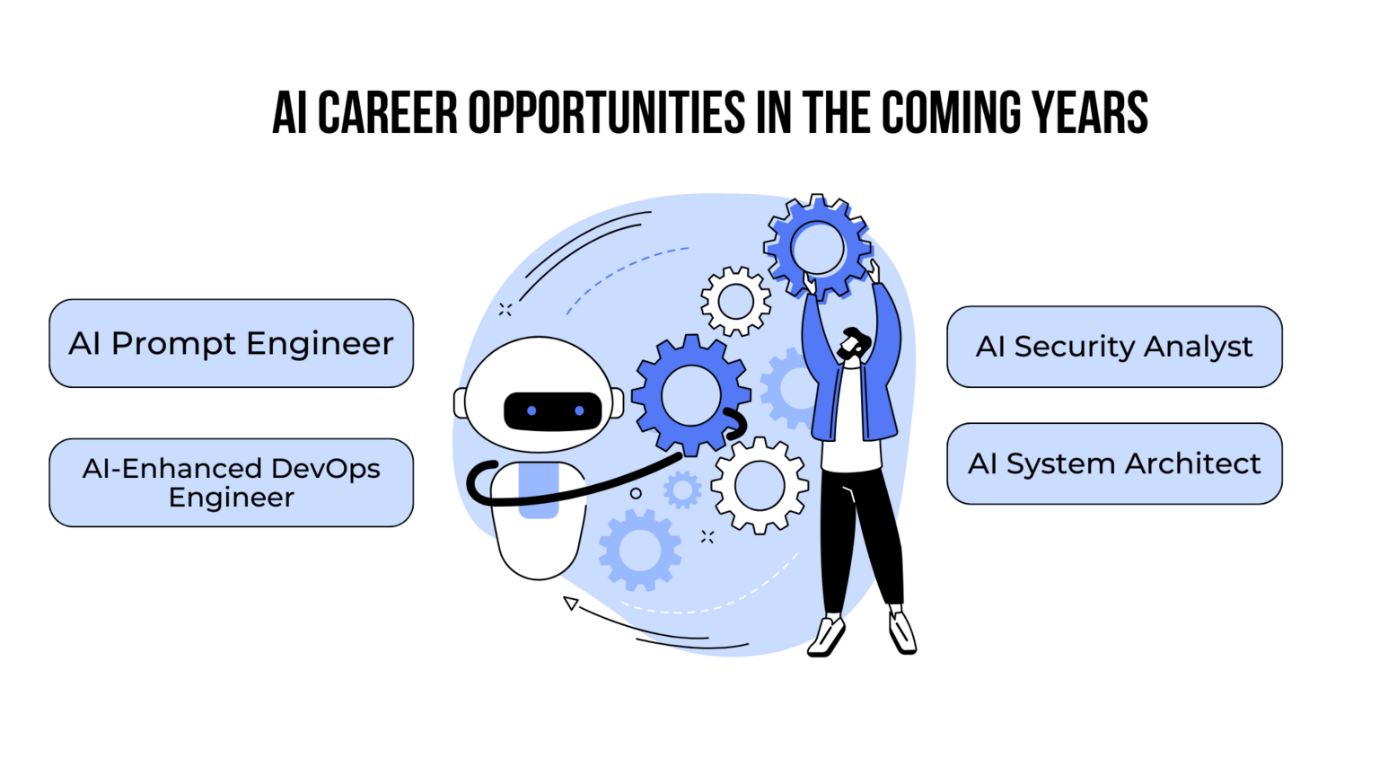AI in Coding: How Intelligent Automation is Transforming Software Development

The Rise of AI in Coding
Artificial Intelligence (AI) is no longer just a futuristic concept—it is actively transforming industries, including software development. The future of Generative AI is unfolding rapidly, with AI-driven tools changing how developers write, debug, and optimize code. From intelligent automation in coding to AI-assisted software engineering, the landscape is shifting dramatically.
Tools like GitHub Copilot, Amazon CodeWhisperer, and Tabnine are revolutionizing the software development process by automating repetitive coding tasks, enhancing efficiency, and reducing development time. However, as AI’s role in coding expands, it raises several questions:
- Will AI reduce the demand for developers, or will it create new AI job opportunities?
- How will AI impact the artificial intelligence job market?
- What skills will be essential for developers in the era of AI-assisted coding?
This article explores these crucial aspects, shedding light on how advancements in AI technology are reshaping the coding landscape.
1. How AI is Transforming Software Development
AI is no longer just an assistant in coding—it is becoming an integral part of the development process. Let’s explore the key ways AI is transforming the industry:
1.1 AI-Powered Code Generation
Developers traditionally write code manually, but AI-powered tools can now generate entire code snippets, functions, and even complex algorithms. GitHub Copilot alone contributes to writing 25% of new code at Alphabet, demonstrating how AI is redefining software development.
1.2 Intelligent Automation in Debugging and Testing
One of the biggest challenges in software development is debugging. AI-driven tools use machine learning models to:
- Detect and fix errors in real-time.
- Predict potential vulnerabilities before deployment.
- Automate unit and integration testing, significantly reducing debugging time.
This level of intelligent automation helps developers focus on more strategic and creative tasks, rather than getting stuck in debugging cycles.
1.3 Streamlining DevOps and CI/CD Pipelines
AI is enhancing Continuous Integration and Continuous Deployment (CI/CD) by:
- Automating code reviews to ensure best practices.
- Optimizing deployment workflows to reduce errors.
- Predicting system failures through AI-driven analytics.
With AI, DevOps teams can streamline software deployment, minimize downtime, and increase overall system reliability.
2. How Developers Are Adapting to AI-Assisted Coding

While AI is automating several aspects of coding, developers are not being replaced. Instead, their roles are evolving into more high-value and strategic responsibilities.
2.1 From Code Writing to AI Prompt Engineering
Developers are shifting from writing code manually to:
- Guiding AI tools to generate high-quality, optimized code.
- Refining AI-generated outputs to ensure accuracy.
- Providing context-specific inputs to get more precise results.
This new skill, known as AI prompt engineering, is becoming essential in modern software development.
2.2 Critical Thinking & Problem-Solving
With AI handling repetitive tasks, developers are focusing on:
- Solving complex architectural problems.
- Optimizing AI-generated code for performance and security.
- Ensuring AI-driven solutions align with business needs.
These shifts require software engineers to think beyond syntax and focus on system-level innovation.
2.3 AI Ethics, Security, and Compliance
AI-driven software development also raises concerns about:
- Bias in AI-generated code.
- Security vulnerabilities in auto-generated scripts.
- Compliance with industry regulations.
Developers are now playing a crucial role in evaluating AI-driven outputs, ensuring that AI tools generate ethical, secure, and high-quality code.
3. The Impact of AI on Hiring and the Job Market
The growing integration of AI in coding is influencing hiring patterns in the artificial intelligence job market.
3.1 Shift in Hiring Priorities
Companies are now prioritizing:
- Developers who can work alongside AI instead of just writing code.
- Engineers with expertise in AI-driven development workflows.
- Problem-solvers who can optimize AI-generated outputs.
Traditional coding skills are still important, but companies are now focusing on professionals with a broader understanding of AI applications in various industries.
3.2 The Growing Demand for AI Talent
Despite AI automating routine coding tasks, the tech talent shortage is still a major issue. Companies are struggling to find professionals with expertise in:
- Machine learning and AI-driven development.
- AI-enhanced DevOps and cloud automation.
- AI-driven cybersecurity and compliance.
This means that developers who upskill in AI and intelligent automation will have better AI career opportunities in the future.
4. Generative AI Trends 2025: What to Expect
Looking ahead, the Generative AI trends 2025 indicate that AI’s role in software development will continue to expand.
4.1 AI as a Co-Developer
By 2025, AI will take on even more advanced roles, including:
- Suggesting architecture designs.
- Optimizing entire codebases for efficiency.
- Enhancing collaboration in distributed teams through AI-powered coding assistants.
4.2 AI-Driven Automation Across Industries
Beyond software development, AI is set to revolutionize:
- Healthcare – AI-driven diagnostics and medical coding.
- Finance – Algorithmic trading and fraud detection.
- Manufacturing – Automated production line optimization.
Understanding AI applications in various industries will give developers a competitive edge.
4.3 Ethical AI and Regulatory Frameworks
As AI-generated code becomes more prevalent, businesses will need to ensure compliance with evolving AI regulations. Ethical considerations will become central to AI adoption in software development.
Also Read: Future Trends in AI-Driven & Emerging Technology Development
5. AI Career Opportunities in the Coming Years

With AI becoming an integral part of coding, AI job opportunities are growing across multiple domains:
- AI Prompt Engineer – Specializing in AI model interactions.
- AI-Enhanced DevOps Engineer – Managing AI-driven automation pipelines.
- AI Security Analyst – Ensuring AI-generated code is secure.
- AI System Architect – Designing AI-integrated applications.
Developers who build expertise in AI-assisted workflows will have better AI career opportunities in the evolving tech landscape.
Conclusion: The Future of AI-Augmented Developers
AI is not replacing developers—it is augmenting their capabilities. The future belongs to professionals who can:
- Leverage AI-driven tools to enhance productivity.
- Think strategically beyond just coding.
- Understand the broader impact of AI across industries.
As AI continues to evolve, embracing intelligent automation and AI-driven development will be essential for long-term career success.
